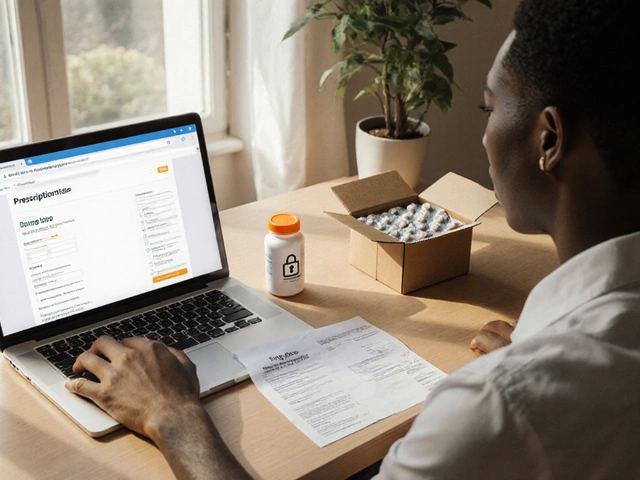Anxiety Supplements: What Works and How to Pick Them
If you’re tired of feeling wired all day, a supplement could be a simple first step toward calm. Unlike prescription meds, many anxiety supplements are sold over‑the‑counter and can fit into your daily routine without a doctor’s visit. Below we break down the most common types, what they do, and safe ways to use them.
Herbal helpers that lower stress
Ashwagandha is an adaptogen that many people say steadies mood. The typical dose is 300‑500 mg of a standardized extract taken once or twice daily. Most users notice a gentler mind after a couple of weeks.
L‑theanine, found in green tea, promotes relaxation without drowsiness. A 200 mg capsule before work can make you feel less jittery while keeping focus sharp. It’s especially handy if caffeine spikes your anxiety.
Passionflower and valerian root are older herbs used for calm. They’re best taken in the evening because they may make you a bit sleepy. Start with low doses (250‑500 mg) to see how you react.
Vitamins, minerals, and other nutrients
Magnesium supports nerve function and can ease muscle tension that often comes with anxiety. A common form is magnesium glycinate; 200‑400 mg before bed works for many people.
B‑complex vitamins (especially B6, B9, B12) help convert food into brain chemicals. If you’re low on these, you might feel extra nervous. A daily B‑complex supplement is usually safe and inexpensive.
Vitamin D deficiency has been linked to mood swings. One 1000 IU capsule a day can keep your levels in the right range, especially during winter months.
Some people add omega‑3 fatty acids from fish oil for brain health. A dose of 1‑2 g per day may reduce anxious thoughts over time.
How to use supplements safely
Start with one new product at a time. That way you’ll know which one is actually helping and which might cause side effects. Keep track of how you feel for at least two weeks before adding another supplement.
Read the label for any warnings about pregnancy, blood pressure, or interactions with prescription meds. If you already take antidepressants, check with a pharmacist before adding an herb like St. John’s wort, which can clash with other drugs.
Buy from reputable online pharmacies—look for sites that show third‑party testing and clear contact info. Cheap “miracle” powders often lack quality control and could contain hidden ingredients.
Quick tips for choosing the right anxiety supplement
- Identify what triggers your anxiety (caffeine, stress at work, sleeplessness) and pick a supplement that targets that cause.
- Check customer reviews for real‑world results, but stay skeptical of overly hypey claims.
- Consider combining a calming herb with a mineral like magnesium for a balanced approach.
- Never replace prescribed medication without talking to your doctor.
Remember, supplements are not magic pills. They work best when paired with good sleep, regular exercise, and stress‑management habits. Start small, stay consistent, and you’ll likely notice a steadier mood within weeks.
Natural Hydroxyzine Alternatives: Evidence-Based Herbal and Nutritional Remedies for Anxiety and Sleep
Looking for natural remedies to help with anxiety and sleep instead of hydroxyzine? This article dives into the scientific evidence behind specific herbs and supplements, including dosages and safety tips. You'll get honest info on how they stack up, what risks to watch for, and practical advice that's easy to follow. If you've been curious about going the natural route for relief, here's what you should know before swapping your meds for herbs and vitamins.












